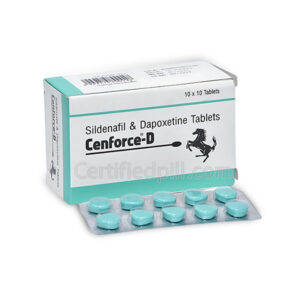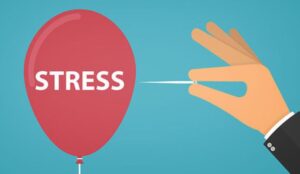Hormone Balance: Treatment of High Erectile Dysfunction in Men.

Erectile dysfunction (ED) is defined as the inability to achieve or maintain a sufficient erection for sexual performance. While it is frequently related with aging, psychological causes, or cardiovascular problems, hormone imbalances can also play an important part in its development. This essay investigates how hormone balance affects erectile dysfunction in males and covers several therapy techniques for hormonal causes of ED.
Understanding Erectile Dysfunction.
1. Definition and prevalence
Erectile dysfunction is a widespread problem impacting millions of men worldwide. It is estimated that over 30% of men over the age of 40 have some kind of ED. The problem might range from occasional difficulty to a persistent failure to achieve or maintain an erection.
2. Causes and contributing factors
Eating disorders can be caused by a complex interaction of medical, psychological, and lifestyle variables. Common physical factors include cardiovascular disease, diabetes, obesity, and hormone abnormalities. Stress, anxiety, and sadness are all important psychological elements to consider. Lifestyle variables such as smoking, alcohol intake, and sedentary behavior might worsen the illness.


Hormonal Imbalance and Erectile Dysfunction
1. Testosterone Deficit
Testosterone is an important hormone in male sexual health, affecting libido, erectile function, and overall sexual performance. Low testosterone levels, commonly known as hypogonadism, can cause diminished sexual desire, erectile dysfunction, and overall health.
- Symptoms of Low Testosterone: Symptoms of low testosterone include decreased sexual interest, erectile dysfunction, exhaustion, depression, and muscle loss.
- Diagnosis: Serum testosterone levels are measured by blood testing. Low levels, together with symptoms, indicate testosterone insufficiency.
2. Thyroid dysfunction
Thyroid hormones, particularly thyroxine (T4) and triiodothyronine (T3), are essential for metabolic health and energy levels. Both hypothyroidism (low thyroid hormone levels) and hyperthyroidism (high thyroid hormone levels) can affect sexual function.
- Hypothyroidism: Symptoms of hypothyroidism include fatigue, weight gain, and diminished libido. Hypothyroidism in males can worsen erectile dysfunction by altering energy and mood.
- Hypothyroidism: Weight loss, anxiety, and an elevated heart rate are all symptoms of hyperthyroidism, which can damage sexual health and contribute to erectile dysfunction.
3. Estrogen Imbalance
While estrogen is commonly thought of as a female hormone, it is also found in men in lower amounts and plays a role in controlling libido and erectile function. Elevated estrogen levels can result from illnesses such as liver disease or hormonal imbalances, and they may contribute to erectile dysfunction.
4. Adrenal Gland Disorders
The adrenal glands create hormones that have a role in the body’s stress response, including cortisol and adrenaline. Chronic stress and adrenal diseases can cause hormonal imbalances that affect sexual function.
- Cortisol: Chronic stress can cause elevated cortisol levels, which can have an effect on testosterone levels and sexual function.
- Adrenal Insufficiency: Adrenal insufficiency can cause fatigue, decreased libido, and erectile dysfunction.
Diagnosis of Hormonal Imbalance
1. Medical History and Physical Examination.
A detailed medical history and physical examination are required to diagnose hormone abnormalities. The healthcare professional will evaluate symptoms, lifestyle factors, and any underlying medical disorders that may contribute to ED.
2. Laboratory tests.
Blood tests are critical for determining hormone levels. Common tests include:
- Serum Testosterone Levels: Used to identify testosterone deficiency.
- Thyroid Function Tests: To determine thyroid hormone levels.
- Estrogen Levels: To determine estrogen balance.
- Adrenal Function Tests: To assess cortisol and other adrenal hormone.


Treatment Options for Hormonal Imbalance
1. Testosterone Replacement Therapy (TRT)
For males with low testosterone levels, testosterone replacement therapy can be a useful treatment. Various types of TRT include:
- Intramuscular Injections: Intramuscular injections are used to give testosterone enanthate or testosterone cypionate.
- Transdermal Patches: Patches put to the skin provide a consistent dose of testosterone.
- Topical Gels: Gels applied to the skin promote testosterone absorption.
- Pellets: Implanted beneath the skin, pellets gradually release testosterone.
Benefits and Risks of TRT:
- Benefits: Benefits include improved sexual function, higher desire, better mood, and increased muscle growth.
- Risks: Risks include acne, sleep apnea, an increased risk of cardiovascular disease, and a possible influence on fertility.
2. Thyroid Hormone Replacement
Individuals with thyroid dysfunction may benefit from proper thyroid hormone replacement to restore balance and improve erectile function.
- Hypothyroidism Treatment: To restore inadequate thyroid hormones, levothyroxine is usually administered.
Treatment options for hyperthyroidism include antithyroid medicines, radioactive iodine, and thyroidectomy, depending on the severity and underlying reason.
3. Estrogen Management
Identifying the root cause of increased estrogen levels is critical. Treatment may include:
- Medication: Aromatase inhibitors and selective estrogen receptor modulators (SERMs) can help regulate estrogen levels.
- Lifestyle Changes: Lifestyle changes, such as reducing alcohol use, managing weight, and increasing overall health, can help to maintain hormonal balance.
4. Adrenal Support and Stress Management
Adrenal gland issues and stress management can assist restore hormonal balance and sexual function.
- Adrenal Insufficiency Treatment: Treatment for adrenal insufficiency may include hormone replacement treatment or medicines, depending on the individual’s needs.
- Stress Management: Mindfulness, relaxation techniques, and counseling can all assist manage chronic stress and its effects on hormone balance.
Lifestyle and Behavioral Interventions
1. Diet & Nutrition
A well-balanced diet high in  vitamins and minerals helps improve hormonal health. Zinc, vitamin D, and omega-3 fatty acids are critical nutrients for maintaining healthy hormone levels.
vitamins and minerals helps improve hormonal health. Zinc, vitamin D, and omega-3 fatty acids are critical nutrients for maintaining healthy hormone levels.
2. Exercise

Regular physical activity improves general health and can help control hormone levels. Exercise also boosts mood, lowers stress, and improves sexual performance.
3. Sleep

Adequate sleep is vital for maintaining hormonal balance. Poor sleep can affect hormone synthesis, contributing to ED. Aim for 7-9 hours of quality sleep per night.
4. Stress Reduction
 Stress management practices such as meditation, yoga, and therapy help improve hormonal health and lessen the risk of developing an eating disorder.
Stress management practices such as meditation, yoga, and therapy help improve hormonal health and lessen the risk of developing an eating disorder.
Combining hormone and non-hormonal treatments
1. Integrative Approach
An integrative approach that combines hormone medications with lifestyle and behavioral changes can give a holistic answer for ED management. To increase overall effectiveness, TRT can be coupled with stress management strategies, dietary changes, and exercise.
2. Psychological Support
Therapy or counseling can supplement hormonal treatments for people with ED who also have psychological issues. Addressing both psychological and physiological factors can produce more effective results.
The Final Say
Hormonal abnormalities can have a substantial impact on erectile function, thus addressing them is an important part of treating erectile dysfunction. ED can be caused by a variety of hormonal abnormalities, including testosterone insufficiency, thyroid dysfunction, estrogen imbalance, and adrenal illnesses. A comprehensive strategy is required for effective therapy, which involves accurate diagnosis, proper hormone medications, and lifestyle changes.
While hormonal treatments including testosterone replacement therapy, thyroid hormone replacement, and managing estrogen and adrenal imbalances can be successful, they should be part of a larger treatment plan. Combining hormone therapy with lifestyle adjustments, stress management, and psychological support can result in better outcomes and more overall well-being. Men with erectile dysfunction can improve their sexual health and quality of life by addressing hormone imbalances and taking a more holistic approach to health.
Category: Healthcare